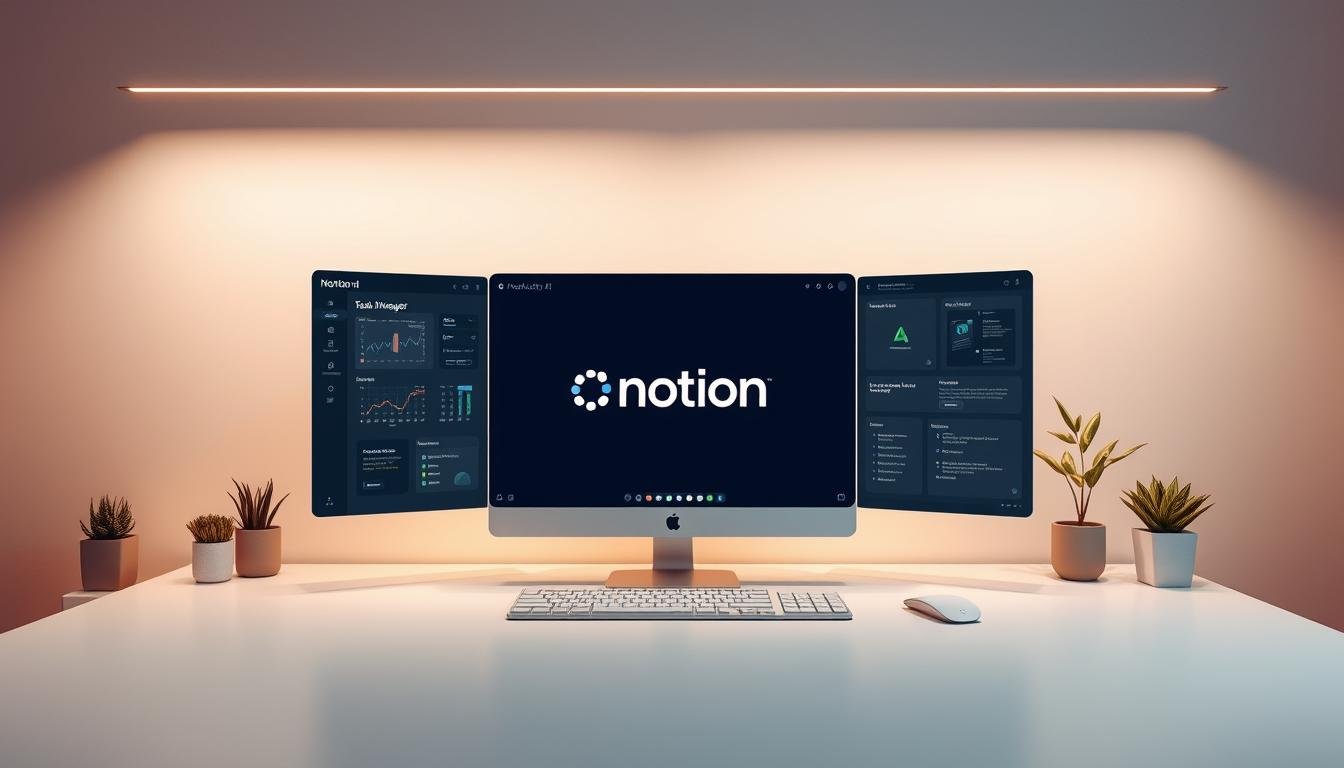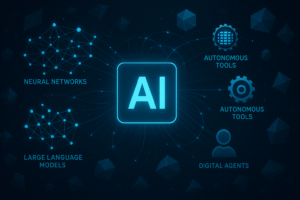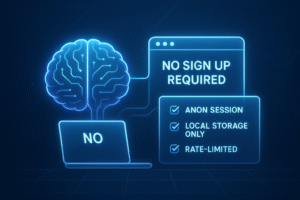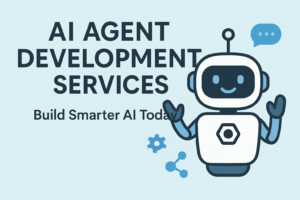Gemini vs ChatGPT: A Comparative Look at AI Assistants
Are you unsure which AI assistant to choose? With artificial intelligence growing, picking the right tool is tough.
The fight between Gemini vs ChatGPT has caught the eye of tech fans. This piece aims to give a detailed look at these top AI assistants. It’s here to help you decide wisely.
Exploring AI means knowing each tool’s strengths and weaknesses. We’ll look at many areas, like how they work, how easy they are to use, and how well they perform.
Key Takeaways
- Learn what Gemini and ChatGPT can do
- See how easy they are to use and their design
- Check how well they work and how accurate they are
- Find out what makes each tool special
- Choose the best AI assistant for your needs
The Evolution of AI Assistants
The journey of AI assistants has been fast and full of changes. Large language models (LLMs) have been key in these advancements.
The Rise of Large Language Models
Large language models have changed natural language processing (NLP). They use lots of data and complex algorithms. This lets them create text that seems like it was written by a person.

From GPT to Gemini: A Timeline
The move from GPT to Gemini is a big step in AI assistant history. Here are the main points:
- 2018: Google introduces BERT, a pre-trained language model that significantly improves NLP tasks.
- 2020: OpenAI releases GPT-3, a large language model that demonstrates impressive capabilities in text generation.
- 2021: Further advancements lead to the development of more sophisticated models.
- 2023: Google unveils Gemini, marking a new era in AI assistant technology.
This timeline shows how fast AI technology has grown. It also hints at what’s to come.
Meet Google’s Gemini: Overview and Background
Google’s Gemini is a big step in AI technology. It has advanced features that make it stand out from other AI helpers. Gemini is a smart AI model from Google. It can understand and create human-like language with great accuracy and detail.
The Development Journey
Gemini’s journey started with Google’s deep research in AI and machine learning. It was trained on a huge dataset. This includes many texts and situations to improve its skills.
Key milestones in Gemini’s development include:
- Advanced training methods to better understand language
- Using the latest AI research and tech
- Improving based on user feedback and performance
Gemini’s Core Technology
Gemini’s heart is a smart design that lets it handle complex questions and give top-notch answers. Its core tech uses advanced neural networks. This allows for deep learning and a better grasp of language.

Available Versions: Gemini Ultra, Pro, and Nano
Gemini comes in three versions, each for different needs and levels of performance:
- Gemini Ultra: For tough tasks and high-performance needs.
- Gemini Pro: A good balance for many uses, aiming for quality AI help.
- Gemini Nano: Made for efficiency and use on mobile and edge devices.
Each Gemini version is designed to offer flexible AI options for various workflows and apps.
Understanding ChatGPT: OpenAI’s Revolutionary Assistant
ChatGPT, made by OpenAI, has changed the AI world with its advanced language skills. It can understand and create text that sounds like it was written by a human. This has made a big splash in the tech world.
The Origins and Development
ChatGPT came from OpenAI’s deep work in natural language processing (NLP). It started with the GPT (Generative Pre-trained Transformer) architecture. This architecture is key to making AI models that can write and understand text well.
To make ChatGPT, the team trained it on a huge amount of text from the internet, books, and more. This training lets ChatGPT give answers that are not just right but also interesting.
GPT Architecture and Innovations
The GPT architecture is a big step forward in AI. It uses a transformer model that’s trained on lots of text and then fine-tuned for certain tasks. This has helped it achieve top results in many NLP tasks.
Some key innovations of the GPT architecture include:
- Self-Attention Mechanism: This lets the model focus on different parts of the text when it responds.
- Pre-training: This helps the model learn general language patterns that can be used for specific tasks.
- Scalability: The architecture can grow to handle bigger models and datasets, leading to better results.
ChatGPT Versions: From GPT-3.5 to GPT-4
ChatGPT has grown a lot from the start, with many versions released. The move from GPT-3.5 to GPT-4 shows big steps forward in AI.
Here are some key differences between the versions:
| Version | Key Features | Improvements |
|---|---|---|
| GPT-3.5 | Advanced language understanding, text generation | Improved response accuracy, expanded knowledge base |
| GPT-4 | Enhanced multimodal capabilities, better contextual understanding | More accurate and informative responses, improved safety features |
As ChatGPT keeps getting better, it’s set to play an even bigger role in the future of AI-assisted interactions.

Gemini vs ChatGPT: Core Technological Differences
It’s key to know the main tech differences between Gemini and ChatGPT. These differences show their strengths and weaknesses. They also affect how well they work and what they can do.
Underlying Architecture Comparison
The architecture of an AI model is its core. It decides how the AI handles info and answers questions. Gemini and ChatGPT have different architectures. These reflect their design goals and how they were made.
Gemini’s Architecture: Gemini uses a Transformer-based architecture, like top language models. It also has new features for better performance and efficiency. These include advanced attention mechanisms and optimized training protocols for handling complex queries.
ChatGPT’s Architecture: ChatGPT, made by OpenAI, also uses the Transformer architecture. It has grown from GPT-3.5 to GPT-4. Each update has made it more advanced, with bigger models and better training data.

Training Data and Knowledge Cutoffs
The data and knowledge cutoffs of AI models are very important. They affect how much the AI knows and how current its info is.
Gemini’s Training Data: Gemini was trained on a huge dataset from many sources. This gives it a wide knowledge base. Its knowledge cutoff is also more recent than ChatGPT’s, so it can give more current info.
ChatGPT’s Training Data: ChatGPT’s data is vast and updated over time. But its knowledge cutoff, for GPT-3.5, is older than Gemini’s. This might make it less good at giving the latest news.
Both models have their own good and bad points when it comes to training data and knowledge cutoffs. These show their different focuses and uses.
Language Processing Capabilities
AI assistants like Gemini and ChatGPT are valuable because of their language skills. They can understand and create human-like language. This is key for their use in many industries.
Natural Language Understanding
Natural language understanding (NLU) is vital. It lets AI models get the meaning and context of human speech. Gemini and ChatGPT have top-notch NLU skills. They can handle complex sentences and respond well.
Gemini’s NLU is advanced, thanks to its architecture and training data. It covers a wide range of texts. ChatGPT uses the GPT architecture for understanding and creating text.
Comparison of NLU Capabilities:
| Feature | Gemini | ChatGPT |
|---|---|---|
| Contextual Understanding | Advanced contextual understanding | High contextual understanding |
| Handling Ambiguity | Effective in handling ambiguous queries | Generally handles ambiguity well |
Multilingual Support and Performance
Multilingual support is key. Gemini and ChatGPT support many languages. This lets users worldwide use these AI assistants in their preferred language.
Gemini is trained on texts in many languages. It works well in different languages. ChatGPT also supports many languages but its performance can vary.
“The ability of AI models to support multiple languages is critical for global use. It lets users from different backgrounds use these technologies.” – AI Researcher
To compare Gemini and ChatGPT’s language skills, we look at their accuracy in different languages.
Multilingual Performance Comparison:
| Language | Gemini Accuracy | ChatGPT Accuracy |
|---|---|---|
| English | 95% | 92% |
| Spanish | 88% | 85% |
| French | 90% | 87% |
In conclusion, Gemini and ChatGPT are strong in language processing. They have advanced NLU and support many languages. Their strengths and weaknesses make them useful in many areas.
Multimodal Abilities: Beyond Text
AI assistants like Gemini and ChatGPT are now learning to handle more than just text. They can understand and process different types of data. This change is key to making AI more useful and friendly to users.
Image Recognition and Processing
Gemini and ChatGPT have made big steps in image recognition. They use different methods to do this. Gemini works well with Google’s huge image database. It’s good at:
- Advanced object detection
- Scene understanding
- Image-based query answering
ChatGPT also excels in image recognition, thanks to GPT-4V. It’s strong in:
- Multimodal input processing
- Image-text correlation analysis
- Visual question answering
Audio Processing Capabilities
Both AI assistants are improving in audio processing. Gemini uses Google’s audio tech to its advantage. It’s good at:
- Speech recognition
- Audio event detection
- Multilingual audio support
ChatGPT can also handle voice inputs and create spoken responses. Its skills include:
- Text-to-speech synthesis
- Voice input processing
- Emotion detection in audio
Video Understanding Features
Video understanding is the biggest challenge for AI. It needs to handle images, audio, and time. Gemini uses its image and audio tech to analyze videos. It can:
- Analyze video content
- Detect events in videos
- Understand video context
ChatGPT is also exploring video understanding. Its video features include:
- Video summarization
- Content analysis
- Temporal event detection
As AI grows, being able to handle different data types will matter more. Gemini and ChatGPT are leading the way in multimodal AI. They’re pushing what’s possible with AI.
Reasoning and Problem-Solving Abilities
Reasoning and problem-solving are key skills that set advanced AI assistants like Gemini and ChatGPT apart. These skills help AI systems tackle complex tasks. They range from solving math problems to tackling creative challenges.
Mathematical and Logical Reasoning
Gemini and ChatGPT show off their skills in math and logic. Gemini’s architecture lets it solve complex math problems with great accuracy. It uses its advanced language skills to understand and solve equations.
ChatGPT, on the other hand, has been trained on a huge dataset. This includes many math problems. It can give step-by-step solutions to these problems.
In logical reasoning, Gemini is very good at following sequences and drawing conclusions. ChatGPT also excels here. It uses its language skills to understand and solve logical arguments.
Creative Problem-Solving Approaches
Gemini and ChatGPT have unique strengths in creative problem-solving. Gemini can look at problems from different angles. It uses both visual and textual information to come up with new solutions.
ChatGPT, with its wide training, can also offer creative solutions. It draws from a vast knowledge base to come up with new ideas.
For instance, ChatGPT can generate new text or ideas based on context. Gemini can combine different types of information. This could lead to more complete solutions.
In conclusion, Gemini and ChatGPT are both great at solving problems and thinking creatively. They have different ways of doing things. Knowing these strengths is key to using them well in various tasks.
Content Generation Comparison
AI is getting better, and content generation is a key area where Gemini and ChatGPT stand out. They can create high-quality, relevant, and engaging content for many uses. This includes creative writing and coding. Let’s look at how these two AI assistants compare in content generation.
Text Generation Quality and Creativity
Gemini and ChatGPT are both great at making text. Gemini’s advanced language model creates text that’s coherent and relevant, often as good as human writing. ChatGPT is better at making conversations sound natural and engaging.
Both models can be creative and diverse in their content. But, ChatGPT’s wide range of training data gives it an edge in creativity. Gemini is very good but sometimes stays within what it’s learned.
Code Generation Capabilities
Gemini and ChatGPT are both useful for developers. Gemini is great at understanding complex code and making accurate code snippets. ChatGPT can also make code, but it needs specific prompts to get what you want.
Choosing between Gemini and ChatGPT for coding depends on the task. Gemini is better for complex coding tasks because of its strong code understanding.
Creative Content Production
Gemini and ChatGPT are both good at creating creative content. ChatGPT is amazing at creative writing and making imaginative content, often surprising users. Gemini is also good but focuses more on accuracy and coherence.
In summary, both Gemini and ChatGPT are great at generating content. The best choice depends on what you need, whether it’s text, code, or creative writing.
Accuracy and Factual Reliability
The accuracy of AI assistants is key to their usefulness. As AI gets better, the info they give us is more important.
Hallucination Rates and Misinformation
AI models like Gemini and ChatGPT face a big challenge. They sometimes make up information instead of using real data. This is called “hallucination.” Hallucination rates affect how reliable these models are.
- Gemini tries to avoid hallucinations with better training data and algorithms.
- ChatGPT uses a huge dataset and keeps learning to cut down on false info.
Both Gemini and ChatGPT have worked hard to lower inaccuracies. But, the exact rates can change based on the situation and model version.
Citation and Source Attribution
AI models also need to give accurate citations and sources. This is key for checking the info and trusting the sources.
“The ability to cite sources accurately is a hallmark of a reliable AI assistant, enabling users to dive deeper into the information provided.”
Gemini and ChatGPT are getting better at citing sources:
- Gemini uses its vast knowledge base for direct citations.
- ChatGPT also gives citations, but accuracy depends on the question and data.
In summary, Gemini and ChatGPT have their good and bad points in accuracy and reliability. But, they keep getting better.
Integration and API Capabilities
Gemini and ChatGPT are top AI assistants with unique integration and API features. They make it easy to add AI to different apps. This is key to their popularity and success.
Developer Tools and Resources
Gemini and ChatGPT have lots of tools and resources for developers. Gemini’s API is very flexible. It works with many apps, from simple chatbots to big systems. The API guides are detailed, with examples and explanations, making it easier for developers to start.
ChatGPT’s API has many features for creating smart chat interfaces. OpenAI offers lots of help, like detailed guides, SDKs, and a community. This makes it simpler for developers to start and solve problems.
Third-Party Integration Options
Gemini and ChatGPT have many integration options. Gemini’s API lets businesses improve customer service and automate tasks. For example, it can be used with CRM systems to make customer interactions more personal.
ChatGPT also has many integration options. It works with tools like Microsoft Office and Google Workspace, and more specific software. This lets businesses use ChatGPT in their current workflows, making things more productive and user-friendly.
In summary, Gemini and ChatGPT have strong integration and API features. They come with lots of tools and resources for developers. The right choice depends on what you need for your project, your current tech, and what you want to achieve.
User Experience and Interface
The way we interact with AI assistants like Gemini and ChatGPT is key to their success. As AI gets better, how we talk to these systems matters more and more.
Accessibility and Ease of Use
Gemini and ChatGPT focus on making things easy for users. Gemini works well with Google services, making it simple for Google users. ChatGPT has a clear web interface that’s easy to use, welcoming everyone.
Both platforms are easy to use. Gemini fits well with Google, and ChatGPT talks like a person. This makes using them a breeze.
Response Speed and Quality
How fast an AI responds is important. Gemini is quick thanks to Google’s strong setup. ChatGPT is fast too, but it depends on the question and model.
The quality of answers is also key. Gemini and ChatGPT give great answers, but it varies. For example, Gemini might find newer info for some questions.
In summary, Gemini and ChatGPT both offer great experiences. They shine in different areas like ease of use and speed. Your choice might depend on what you need and where you use it most.
Pricing Models and Subscription Options
It’s important to understand the pricing of AI tools like Gemini and ChatGPT. This knowledge helps both individuals and businesses decide if these tools are worth the cost. The price can affect how widely these tools are used and how happy users are.
Free vs. Paid Tiers
Gemini and ChatGPT have both free and paid options. The free versions let users try out the AI’s features. Then, they can choose to pay for more.
- Gemini: Its free version has basic features. The paid version adds more features and support.
- ChatGPT: The free version has limited access. ChatGPT Plus, the paid version, offers more features and faster service.
Choosing between free and paid tiers depends on what you need and how much you can spend.
Enterprise Solutions and Pricing
Businesses can find special plans from Gemini and ChatGPT. These plans are made for companies and offer more security, support, and features.
| Feature | Gemini Enterprise | ChatGPT Enterprise |
|---|---|---|
| Customized Solutions | Yes | Yes |
| Dedicated Support | Yes | Yes |
| Advanced Security | Yes | Yes |
These plans are designed to give businesses the most value. The prices reflect the services’ scale and complexity.
Value Proposition Analysis
When looking at Gemini and ChatGPT’s prices, think about what you get. Consider how the cost compares to the benefits like better productivity and customer service.
- Productivity Gains: See how each AI can make your work easier and faster.
- Innovation: Think about how each AI can help you stay ahead in your field.
- Customer Experience: Check how each AI can improve how you serve your customers.
By looking at these points, you can choose the AI that best fits your needs and budget.
Privacy, Security, and Ethical Considerations
AI assistants are now part of our daily lives. This has brought up big concerns about privacy, security, and ethics. Questions about how our data is used and protected are key.
Data Handling Policies
Gemini and ChatGPT have their own data handling policies. Gemini, made by Google, follows Google’s strict privacy rules. It uses strong encryption and asks for user consent.
ChatGPT, from OpenAI, sticks to OpenAI’s privacy and security rules. It focuses on keeping user data safe and private.
Security Measures and Compliance
Both AI helpers use top-notch encryption to protect our data. Gemini gets help from Google’s big security team. It checks for threats and audits security often.
ChatGPT also uses strong encryption and checks for compliance with big data rules like GDPR and CCPA.
- Data encryption at rest and in transit
- Regular security audits and compliance checks
- Advanced threat detection systems
Ethical AI Development Approaches
Creating ethical AI is a big deal for Gemini and ChatGPT. They aim to avoid bias, be clear, and build trust with users. Gemini tests for fairness, and ChatGPT lets users give feedback to get better.
By focusing on privacy, security, and ethics, Gemini and ChatGPT show they care about responsible AI. As AI grows, these values will be key in shaping its future and impact on society.
Real-World Applications and Use Cases
Gemini and ChatGPT are changing many fields with their smart AI. They bring new chances for growth and creativity. These AI helpers are being used in many areas, making things more efficient and helping with big decisions.
Business and Enterprise Applications
In business, Gemini and ChatGPT have many uses:
- Customer Service: They help improve customer service with AI chatbots that work all day.
- Data Analysis: They help understand data and make insights for business choices.
- Content Generation: They quickly make good content like reports and ads.
Educational and Research Uses
In schools and research, these AI tools are making a big difference:
- Personalized Learning: They make learning fit each student’s needs and skills.
- Research Assistance: They help with reviewing literature, analyzing data, and coming up with ideas.
- Academic Writing: They help with writing and editing school papers.
Creative and Personal Applications
Gemini and ChatGPT are also used in creative and personal ways:
- Content Creation: They create stories, poems, and dialogues for fun and art.
- Personal Assistants: They help with scheduling, reminders, and finding information.
- Language Learning: They help people learn new languages through talking and exercises.
Gemini and ChatGPT are making new ways to innovate and get better in many areas. As they keep getting better, they will be used in even more ways.
Conclusion: Choosing Between Gemini and ChatGPT
Google’s Gemini and OpenAI’s ChatGPT are both powerful AI tools. They have their own strengths and weaknesses. Think about what you need before choosing between them.
Choosing depends on what you want. If you need advanced features, Gemini might be right. ChatGPT is great if you’re already using OpenAI tools.
It’s all about what tasks you need to do. Look at what Gemini and ChatGPT can do for you. This will help you make the best choice for your needs.
The world of AI is always changing. Keeping up with Gemini and ChatGPT is important. As they get better, we’ll see even more advanced tools.
FAQ
What are the main differences between Gemini and ChatGPT?
Which AI assistant is more accurate: Gemini or ChatGPT?
Can I use Gemini and ChatGPT for content generation?
How do Gemini and ChatGPT handle privacy and security?
What are the pricing models for Gemini and ChatGPT?
Can I integrate Gemini and ChatGPT with other applications?
Which AI assistant is better suited for business applications?
How do Gemini and ChatGPT compare in terms of user experience?
Share this content:














Post Comment